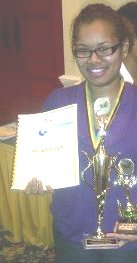What memories will today’s children have of Christmas? I wonder. Is it still such a special season for them?
I grew up in Kingston, and my memories of Christmas are still magical. So many things were special only to that season:
– Getting up in the early morning darkness, getting dressed and running to catch the first bus to attend 5 o’clock Christmas morning service on Higholbourn Street – the air seemed to have a special coolness and tingle that it never had during the rest of the year
– The Christmas carols lustily sung by the congregation more casually dressed than it would be for Sunday service
– People greeting one another with seemingly real joy after the service
– Walking to the down town area for the last of Grand Market on the streets and being mesmerized by the stretch of toys, people, excited children, the noises of fee-fees, bursting balloons, vendors calling attention to their wares, some crying from tired or disappointed small children who didn’t get the toy they wanted
– drinking it all in with the knowledge that this wouldn’t happen again for another lo-o-o-o-ng time. (By the way, Santa figures were few and far between then, making it easier to believe in his magic, even if he didn’t visit us since we had no chimneys.)
I remember getting a small replica of a coal stove, a balloon and a fee-fee at Grand Market one year. Another year I got a new doll – priceless! Usually there would be a Christmas hat with streamers or pretty paper frills. Those were all the toys I might get as any extra money was spent on new curtains for our room (rooms as things got better financially) and special food for the day.
And what special food it was. Breakfast could be slices of ham, ackee and saltfish, maybe crisply fried fish, fried eggs, fried dumplings, special hard dough bread shaped like a bird – I was allowed to break off and eat the head, washed down with orange juice or chocolate ‘tea’.
A quick tidying of the house would be followed by helping with the preparations for Christmas dinner – another feast of rice and gungo peas, ham, fried chicken – I don’t remember the other meats as these were my favourites. There would be macaroni and cheese, fried plantain and, of course, sorrel (without rum for the children) and Christmas cake. People would drop in, either invited or not, and share the meal for there was always, just for this day, plenty to go around and be left over for supper. Some would be put in a container and sent for less fortunate persons in the area. Nobody had to go hungry on that day.
Afterwards, everybody would be slightly cross-eyed, the adults from the added rum in the sorrel or just from being overstuffed with food. I remember going to sleep until late afternoon, then getting up to play with my toys. I was an only child but usually there would be other children visiting and we would show off on one another, playing outdoors as there was no television to keep us locked up inside.
Sometimes we would visit other people. Nobody had expensive gifts to share, but people gave what they had. My mother reared chickens and ducks at one stage, and she would send me with one or the other – alive – to the home of some important person in her church who lived nearby. As I grew older, I got increasingly embarrassed about this. I am not sure that these important persons appreciated it either. But, generally, the day would be one of goodwill and friendliness, even for those who could be quite miserable the rest of the year.
A really good Christmas day would be topped up with a visit on the road by a jonkunnu band, mesmerizing us with the drum and fife music, colourful costumes, and sending most of us children scurrying away from the devil’s ‘fork’ or the policeman’s baton, or worse – the horsehead figure which would snap in the most frightening way. So many things were special to Christmas.
At the end of one very good year, I got a wristwatch for Christmas. I didn’t need any other gift – that was really special because I had got into high school –quite an achievement in my community at the time. By that time we were beginning to put up a Christmas tree, complete with ‘snow’from a can and blinking lights sent from America by a cousin.
What does the modern child expect for Christmas? I guess some traditions remain – the visits by family and friends, the extra special meals – but so many things I would have regarded as out-of- this- world are now so commonplace that I wonder what is now special for Christmas? I hope, at least, the goodwill and extra friendliness remain a very strong part of our (new) traditions




